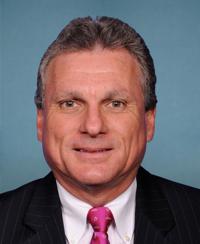
U.S. Rep. Earl L. Carter (R-GA) on Monday introduced the TSA Screening Transparency and Accountability Act, which will analyze cost effectiveness, efficiency and customer satisfaction of the screening partnership program (SPP) compared to the screening procedures of the Transportation Security Administration (TSA).
SPP involve privatized passenger and baggage screening at specific airports that opt out of TSA screening procedures. Currently, 21 airports utilize the SPP program with additional applications pending. However, former TSA administrator John Pistole said in early January that SPP would no longer expand to additional airports.
“Airports that utilize the SPP have seen improved customer experiences, shorter wait lines, better communication with local officials and an overall more efficient process with screening passengers,” Carter said. “The action taken by the TSA to freeze the growth of the program is shortsighted and without explanation. Private security screeners, under the oversight of the TSA, have provided secure and efficient security methods. If airports want the flexibility to use private security screeners to improve their customer service, the government should encourage this effort.”
Carter’s bill would require the TSA to update its cost estimating methodology for federal cost estimates and cost comparisons as it relates to SPP; require the development of a single, streamlined method and standard protocol for documenting and tracking customer complaints for both federal and SPP airport checkpoints within 180 days of enactment; and establish a process for analyzing information on complaint trends from all screening complaint mechanisms.
Additionally, the bill would require the use of data analysis to better inform the public about the nature of screening complaints and will strengthen information sharing between TSA and airport directors.

